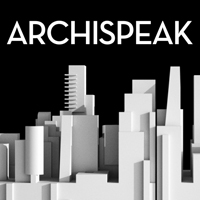I’m not a Terrorist, I’m an Architect
I present the preceding image (hereafter to be referred to as “Item 1”) as evidence pertaining to the specific crime involved. On May 17th of this year, I did knowingly and willfully walk through one outdoor mall known as the Domain (hereafter referred to as “the victim”) gratuitously and without consent, taking photographs of the assembled buildings. It was immediately after taking this image that I was stopped by a bicycle mounted agent of the victim (hereafter referred to as the “rent-a-cop”) who informed me that I was in violation of management’s security policy which prevents photography of their properties. I proceeded then, to explain that I was an architect who was actually in the process of designing two new phases of the Domain, and that I was simply taking photos of the existing properties for contextual reference. The rent-a-cop said that I could only proceed with my photography with written authorization from the management. At this point, I departed from the scene, but immediately out of sight of the rent-a-cop did proceed to photograph with reckless abandon.
Has this happened to you? Since September 11th, I’ve been surprised how often I get stopped like this. I’m walking down what (I think) is a public street, camera out, snapping shots and some shmo comes up to me and wants to know what I’m up to. Now, there are perfectly good reasons to prevent someone from taking certain photos, especially if they involve intrusions into one’s privacy. However, in a public place, on a public street, with dozens, and sometimes hundreds of people around, companies would dare try to restrict photography?
I shot this several years ago in an elevated plaza above a parking garage in Los Angeles, across the street from my hotel. At the time, I was working on a project where we were contemplating a roof-top terrace on the top of a garage, and thought the imagery might help. Here I was confronted by a burly security guard in a suit and told to immediately stop taking pictures and vacate the premises.
This is a huge issue to me for two reasons
1] I’m a fraking architect! We study buildings and designs! It’s what we fraking do! Imagine telling a botanist they can’t take pictures of daisies, or an entomologist they can’t photograph lady bugs? That’s just crazy, man!
2] I’m in charge of the image library at our firm. When we present designs to clients, we often include image boards with photography of projects that are similar in design, use similar materials, etc. We have over 8,000 images in our library and are constantly expanding it to help our designs evolve.
Well, suffice it to say that not being able to take pictures of buildings is a bit of a damper on the whole process. Ultimately, I wonder what the real effect is? Far be it from me to suspect that property owners would exploit the looming specter of international terrorism to further their own agenda…ahem…but I have a lot of trouble believing that preventing people from taking pictures of buildings is a legitimate step towards a greater security.
Well, as I was driving home in a huff, complaining about this to my wife, she very nicely looked up the issue online and and found this document. It’s a quick summary (in general) of the legal rights you have to take photographs in this country:
Many thanks to Bert P. Krages II Attorney at Law for this little document. I encourage anyone who has experienced this issue to read it and make sure they are aware of their rights. While there are still ways photography can be prevented, we can at least know when property owners have overstepped their bounds.
We will not be contained.
Fight the power.





